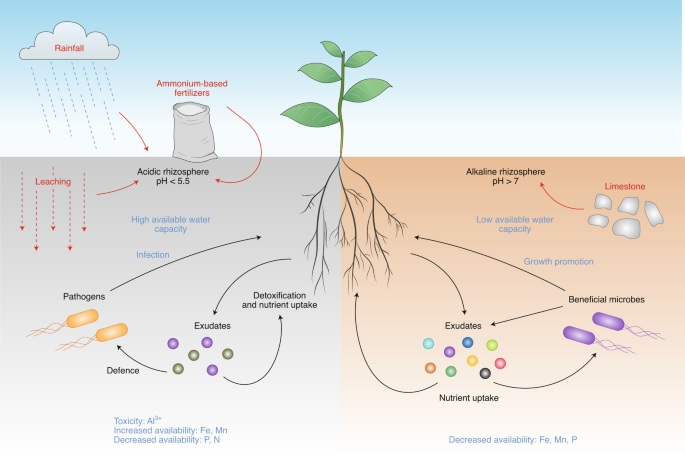[Wolfgang Schmidt] Sensing pH: Revisiting a persistent enigma
POST:Environmental pH (pHe) is a critical parameter for innumerous chemical reactions, myriad biological processes, and all forms of life. The mechanisms that underlie the perception of pHe have been elucidated in detail for bacteria, fungi, and mammalian cells; however, little information is available on whether and, if so, how ambient pH is perceived by plants. This is particularly surprising since pHe is of paramount significance for plants, governing the availability of mineral nutrients, the structure of the soil microbiome, and the composition of natural plant communities. Knowledge on how (putative) pHe signalling is concatenated with other signalling pathways is critical to understand decision-making processes in plants not only from an academic point of view, but also to assist breeders in generating germplasm with increased tolerance to the constraints associated with acid or calcareous soil. In their Perspective, Huei-Hsuan Tsai and Wolfgang Schmidt summarize evidence that conspicuously suggest that gene expression in plants is directly impacted by pHe, and put forward the hypothesis that plants possess means to perceive and effectively respond to ambient pH, possibly by recruiting trans-acting factors that interfere with or override signalling cascades induced by other external stimuli.
